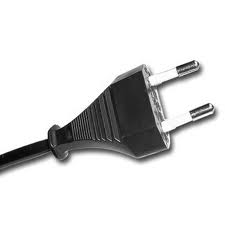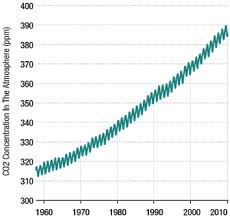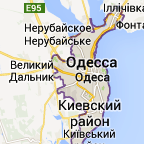(Co-authored with Christopher Walker) The repressive “bloggers law” signed by President Vladimir V. Putin on May 6 says a good deal about the troubling decline of free expression in Russia. This measure comes on the heels of a series of other laws that have recently been put in place to restrict television, books, films, and certain public performances, further curtailing Russia’s already besieged media space.
But at a time when Putin’s governance system is mutating from a venal, kleptocratic regime into a belligerent, revanchist power, what the Russian authorities do at home has important effects on the media environment in countries on Russia’s borders, and beyond.
During the decade and a half of Putin’s rule, media freedom in Russia has gradually eroded. As we write in a recent issue of the Journal of Democracy, the Kremlin is finding alarmingly effective ways to manipulate and control media, despite the proliferation of new communication technologies and methods of news distribution.
With Putin as paramount leader, Russia’s most important media have more become instruments of the state, at least when it comes to information about politics. The authorities have sidelined virtually all mass media outlets that are capable of offering an independent point of view. The effort to marginalize alternative voices and to create a state media system has been in the works since Boris Yeltsin handed Putin the presidency at the end of 1999. Putin began by reasserting control over the national television stations, for example NTV, a private network that during the Yeltsin years had provided critical coverage of important issues, such as the war in Chechnya. By controlling such stations, Putin achieved dominance over the messages that reach the vast majority of Russian citizens, most of whom (over 80 percent) still get their information primarily from television.
Putin’s censorship campaign marches on. Since the start of 2014, the Russian authorities have taken aim at the remaining pockets of independent thought, including TV Rain, Ekho Moskvy, and websites such as Lenta.ru.
The Diffusion of Kremlin Media Values
Putin’s revanchism brings with it some distressing byproducts, one of which is the projection of illiberal Kremlin media values beyond Russia’s borders. Crimea is a case in point. In the short period since its annexation, the peninsula’s media have been subdued and integrated into the repressive Russian information space. The relative media pluralism Crimeans had enjoyed until recently is gone, replaced by a Russian standard that effectively limits alternative viewpoints.
The dismantling of Crimea’s media was achieved swiftly. Days in advance of the rigged March 16 referendum on annexation, Ukrainian television broadcasts were silenced and replaced by programming from Moscow. The first order of business for Russian-backed forces in Crimea was to cut off sources of information beyond the control of the Kremlin. The crackdown on mass media was accompanied by fierce repression of local activists, bloggers, and others who voiced opinions contrary to the Kremlin line, according to a report written by Ivan Šimonović, the UN assistant secretary general for human rights. In the end, officials in Crimea reported that 97 percent of referendum voters supported secession from Ukraine and annexation by Russia. In the aftermath of Russia’s takeover, most Crimeans now get their news from Russian television and the government-run local broadcaster. These stations tend to follow Moscow’s version of events in Ukraine, describing the government in Kyiv as illegitimate, warning of instability across the country, and generally seeking to discredit any Kremlin opponents.
The same type of propaganda invasion that coincided with the physical invasion of Crimea has been on view in eastern Ukraine. As pro-Russian forces extend their hold, Kremlin media values take root there, too, with coercive tactics used on independent journalists and dissidents in ways that are common in Russia, but had been rare in Ukraine. Just this week, separatists in several eastern cities have disrupted local rebroadcasts of Voice of America and Radio Free Europe/Radio Liberty, in some cases replacing them with Russian or pro-Russian content. Reporters from various outlets have been threatened, attacked, or arbitrarily detained.
In addition to Ukraine, Russia’s state television influences other neighboring states with significant Russian-speaking populations. As the Kremlin’s ability to project media power has strengthened over time, the authorities in countries on Russia’s periphery have been forced to contend with increasingly provocative and destabilizing messaging. Moscow’s well-funded media complex simply outguns local Russophone alternatives in places like Moldova, Kyrgyzstan, and the Baltic states.
Moscow’s propaganda effort in these countries is nothing new; it has been a staple of Putin’s rule, calibrated to suit Russian authorities’ needs at any given time. What is different now is its intensity, the sheer brazenness of the falsehoods disseminated by Kremlin-controlled media, and the fact that its disruptive and provocative elements are being escalated as part of Russia’s new revanchist push. The Kremlin’s claims that it wants stability on its borders ring hollow in the face of its own utterly destabilizing propaganda.
Censorship and Propaganda: Two Sides of a Coin
The authorities in Moscow understand very well that propaganda is most effective when accompanied by stringent censorship, so that half-truths and outright lies cannot be challenged by independent voices. This explains a good part of Putin’s rationale for seizing firm control of television in Russia. With this objective achieved, the coupling of propaganda with censorship is increasingly visible online as well.
Even as the Kremlin and its surrogates saturate social networks and the internet in general with comments from Kremlin-friendly trolls and provocateurs, more elaborate measures to censor online expression are being put in place. The “bloggers law,” for instance, requires bloggers with significant audiences to register with the authorities and obliges both domestic and international hosting services to record and turn over user data. Additional evidence that the walls are closing in on Russia’s online world is abundant. Pavel Durov, the founder of Russia’s largest social-networking website, fled Russia on April 22, a day after he said he was forced out as the company’s chief executive for refusing to share users’ personal data with Russian law enforcement agencies. At a forum in St. Petersburg on April 24, Putin called the internet a “CIA project” that needed to be controlled, giving a strong signal that further restrictions are in the offing.
The Kremlin Signals Its Intentions—and Fears—through Media Management
Putin has effectively “weaponized” Russia’s media. The most visible dimension of Russia’s “Special War” with neighboring countries is its withering and divisive propaganda effort.
For all of the outlandishness of so much Kremlin messaging, Russia’s state media have been able to draw outsiders into a debate on its terms. The Russian propaganda machinery’s repeated depiction of the new Kyiv government as “neo-Nazis” and “fascists” has the effect of muddying the waters, making it difficult to have a coherent conversation about Ukraine’s leaders. The relentless dissemination of false accusations also undermines the possibility of a clear-headed examination of the rampantly corrupt and repressive record of the ousted Yanukovych administration, whose abysmal governance drove Ukrainians into the streets. And many foreign media outlets instinctively steer a “balanced” course between Kremlin propaganda and Kyiv’s rebuttals, for example by discussing the farcical separatist referendums in a cautious, credulous tone.
Despite its effectiveness, the Kremlin’s massive investment in propaganda and censorship betrays the Russian leadership’s anxiety about its own grasp on power. Indeed, the overall effort to destabilize Ukraine and its critical May 25 elections reflects the deep insecurities stemming from the Putin regime’s own lack of democratic legitimacy.
The latest mutation of Russia’s media began with the mass antigovernment protests in Moscow and other cities in 2011–12, and gathered pace with the rise of popular protests in Kyiv. Both protest movements were a public response to deeply corrupt, unresponsive, and increasingly repressive systems. The common features of these two popular movements—and their implications—were not lost on the Kremlin.
The elaborate media weaponry deployed by Russia and the venomous messaging it projects cannot be wished away. There is little doubt that its success to date will encourage the authorities to rely even more on media manipulation and subterfuge.
Given this likelihood, understanding the two connected challenges presented by the Russia’s illiberal media system is essential. One arises from censorship, the other from propaganda. Russia’s deepening censorship means that ordinary Russians are increasingly cut off from independent information about the actions of their own government and the wider world. It suggests that outside efforts to enable the flow of such information into Russia will need to be enhanced. Meanwhile, the ever more sophisticated propaganda disseminated by the Kremlin, which is grounded in anti-Westernism and anti-Americanism, requires a more effective answer from democracies, which have been caught flat-footed by the Russian media onslaught.
Putin’s regime and other corrupt, repressive governments need a first-rate propaganda capacity and an ability to silence alternative voices. After all, what the authoritarians actually offer by way of a governing vision demonstrably lacks mass appeal. Russia’s leaders undoubtedly understand this all too well, and therefore invest as much as possible in media arsenals that can distract the public from the grim reality they have created.
———-
This article originally appeared on Freedom House.
Robert Orttung is assistant director of the Institute for European, Russian, and Eurasian Studies at the George Washington University’s Elliott School for International Affairs. Christopher Walker is executive director of the International Forum for Democratic Studies at the National Endowment for Democracy .











